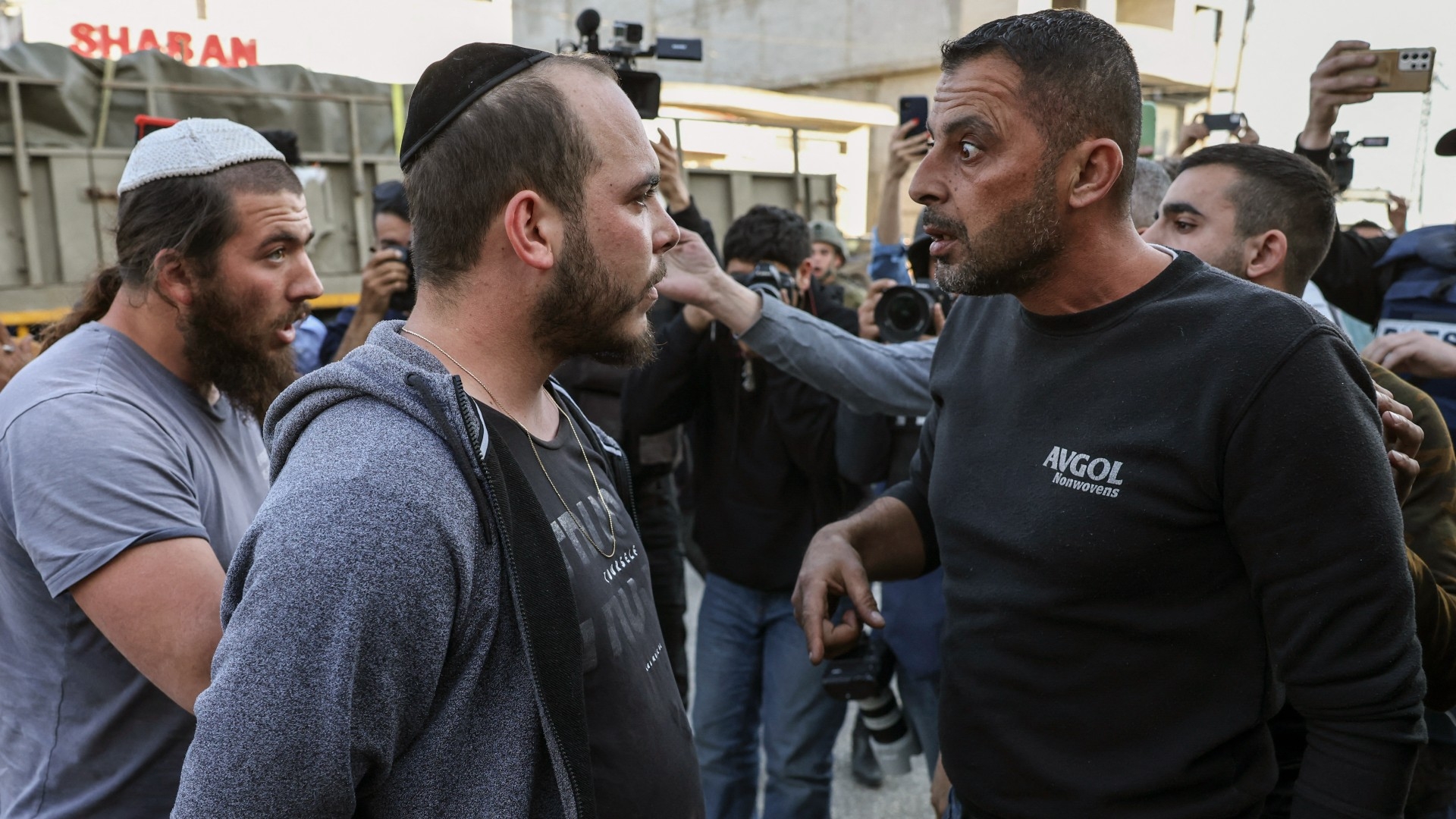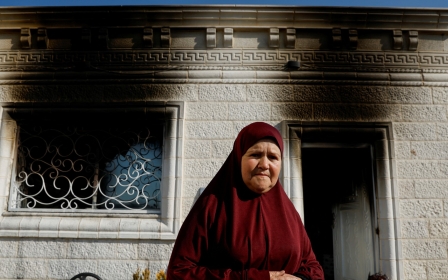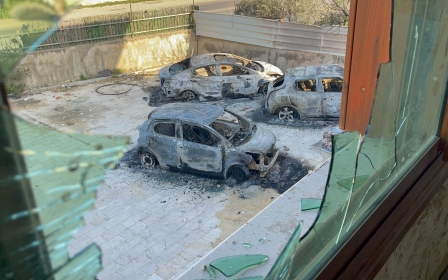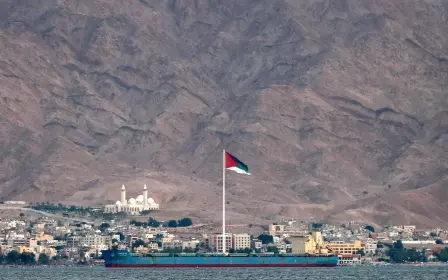Huwwara riots: Israel's leaders stoke flames by lauding settler attacks

Hours before Israeli settlers set the occupied West Bank town of Huwwara ablaze on Sunday, several Israeli politicians called for the Palestinian village to be wiped out.
In a since deleted tweet, David Ben Zion, the deputy head of the Samaria Council that governs illegal settlements in the northern West Bank, called for Israeli politicians to show no mercy and that the “village of Huwwara should be erased today”.
The tweet was liked by the country’s Finance Minister Bezalel Smotrich, and followed the fatal shooting of two Israeli settlers carried out by a suspected Palestinian gunman on Sunday in the town.
Ben Zion, who represents more than a dozen Israeli settlements in the occupied West Bank including where the attack occurred, later said that he had written the comments in the “heat of the moment”.
New MEE newsletter: Jerusalem Dispatch
Sign up to get the latest insights and analysis on Israel-Palestine, alongside Turkey Unpacked and other MEE newsletters
Smotrich’s liking of the tweet by Ben Zion also drew condemnation and was viewed by some as the state sanctioning of mob violence.
“Our minister of finance, minister of the defence ministry and a member of the security cabinet supports erasing an entire village when the only sin of its inhabitants is that they are Palestinians,” Shir Nosatzki, a social media entrepreneur, said on Twitter.
On Sunday, Smotrich escalated rhetoric himself, demanding that the Israeli army "hit Palestinian cities, with tanks and helicopters, mercilessly, in a way that would convey that the owner of the house has gone mad".
With buildings in Huwwara still smouldering and the Palestinian gunman still on the run, Smotrich took to Twitter on Sunday evening to promote a thread that recommended the “collective punishment of the terrorist's family and environment as an effective and necessary tool in asymmetric warfare”. Collective punishment of occupied populations is illegal under international law.
At least one Palestinian was killed and nearly 400 wounded in the attacks on Huwwara and other West Bank towns and villages, Palestinian health officials said. Settlers completely burnt down at least 35 homes and 40 others were partially damaged, and many of the buildings were set on fire while their Palestinian inhabitants sheltered inside. More than 100 cars were burnt or otherwise destroyed.
'Act with an iron fist'
Smotrich and Ben Zion were not the only Israeli leaders, politicians and commentators pouring fuel on the fire and seeking to legitimise the actions of the settlers.
Aryeh Erlich, an editor at the ultra-orthodox magazine Mishpacha, downplayed the riots, by writing:
“The thought now should not be of boys whose blood boiled after seeing the bodies of their two friends lying in their blood on the road.”
Whereas Limor Son Har-Melech from Jewish Power, the party of far-right National Security Minister Itamar Ben Gvir that is part of the ruling coalition, called the riots “the righteous cry of hundreds of Samaria residents who came out to protest and demand security”.
Similarly, another MP from Prime Minister Benjamin Nentanyahu’s Likud party sympathised with the settlers, urging the state to “act with an iron fist!”.
As videos of violent lawlessness spread on social media, with Israeli forces seemingly unwilling to stop rioters, settlers were more than happy to share their plans.
One settler filmed himself in Huwwara as Palestinian houses burned in the background, predicting the coming end of the Israeli army and the transition to Jewish militias, going on to laud the “very exciting revenge operation”.
'Immune to the law'
Yet the scenes also frightened many on the right, even drawing a comparison to Kristallnacht, the "Night of Broken Glass", the state-directed pogrom against Jews carried out by the Nazi Party in Germany in 1938, from a seasoned commentator.
“The government needs to decide if it acts as a sovereign in the territories, if it is determined to impose law and order on Arabs and Jews alike, or if it serves as a fig leaf for the hilltop youth,” wrote Nahum Barnea for the right-wing Israeli news outlet Ynet, referring to the radical settler group.
'Huwwara is closed and burned. That is what I want to see. Only thus can we obtain deterrence'
- Zvika Fogel, Jewish Power politician
While Israeli settlers have regularly committed attacks against Palestinians in the West Bank, Sunday's attacks were “almost unprecedented”, warned Barnea.
Rioting settlers feel “immune to the law. Fear of the state does not apply to them,” said Barnea.
“Smotrich and Ben-Gvir observe the rioters in Huwwara and probably remember themselves: when they were their age, they behaved like them.”
With Huwwara largely abandoned by its Palestinian residents, Israeli settlers rallied in the town, singing in unison under the protection of the army.
“Huwwara is closed and burned. That is what I want to see. Only thus can we obtain deterrence,” said Jewish Power politician Zvika Fogel, celebrating last night’s riots.
At least 62 Palestinians have been killed by Israelis this year, at a rate of more than one fatality per day. Meanwhile, 12 Israeli civilians and one police officer have been killed by Palestinians in the same period.
This follows a steep increase in violence in 2022 when at least 167 Palestinians were killed in the West Bank and East Jerusalem, the highest death toll in those territories in a single year since the Second Intifada. Palestinian attacks killed 30 Israelis last year.
This article is available in French on Middle East Eye French edition.
Middle East Eye delivers independent and unrivalled coverage and analysis of the Middle East, North Africa and beyond. To learn more about republishing this content and the associated fees, please fill out this form. More about MEE can be found here.




